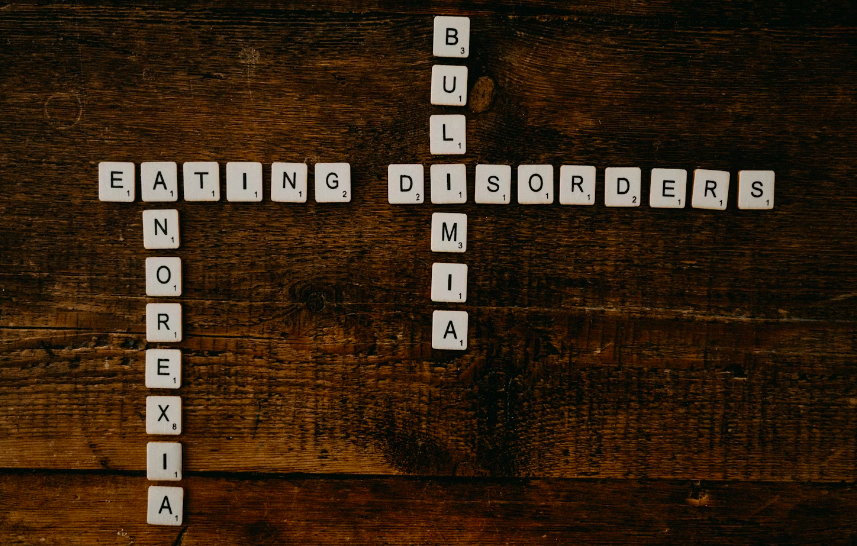
Guilt and Shame: How to Cope and God’s forgiveness
In this blog post we will talk about guilt and shame which are two very powerful emotions that have the potential to affect our lives in both positive and negative ways, as well as how to cope when feelings of guilt and shame are overwhelming you.
What is guilt?
Guilt is a feeling of responsibility or remorse for some offense, crime, or wrongdoing, whether real or imagined. Guilt involves a violation of our values, morals, and standards. It is usually a direct result of our behavior and choices. Guilt can be an effective emotion if it prompts or motivates us to change our behavior in a positive way. It is a pervasive human emotion because we are all human, and we all make mistakes.
What is shame?
Shame, in contrast to guilt, is a feeling in our core of inferiority about our being. It means to perceive ourselves as a failure, unacceptable to others, or somehow ‘flawed’ or ‘damaged’ or ‘not good enough.’ Shame most often comes from the negative messages we receive as children from our family of origin and in our earlier life. Unlike guilt, which can be a helpful or useful emotion, shame is an unhealthy mental state that can lead to debilitating emotions and self-destructive behaviors such as self-injurious behaviors, eating disorders, substance abuse, and more
A good way to conceptualize the difference between guilt and shame is to understand that when we feel guilt, we feel bad about something that we did or neglected to do. However, when we feel shame, we feel bad about ourselves and who we are as people.
Why do we feel guilt and shame?
The feelings of guilt and shame serve an important purpose in our lives. Guilt is our conscience that alerts us that our actions go against our value system – our internal set of beliefs that guide our behavior. Guilt tells us that we need to stop doing what we are doing and do something different instead.
However, when we ignore our feelings of guilt and continue to do what we know is wrong, we start to feel shame. Therefore, shame occurs when we internalize guilt and we begin to believe we are bad people for ignoring our feelings of guilt. The purpose of shame is really uncomfortable. The idea is to make us feel so bad that we are highly motivated to “right” the wrong we committed. The problem comes when shame is so overwhelming that we try to hide what we’ve done, rather than acknowledging it. Hiding our wrongdoing can lead to more guilt and shame, and when others discover what we’ve done, this will only increase our guilt and shame plunging us into a vicious downward spiral.
How guilt and shame affect core beliefs about ourselves:
Our thoughts influence how we feel about a situation and then our emotions influence how we act and react to these emotions. In other words, how we interpret and think about situations will determine how we feel about that situation, and in turn how we feel will influence how we behave and react. Many of our thoughts are automatic meaning they are outside of our conscious awareness but even so they still affect our emotions and behavior. These thoughts come from our core beliefs, which are deeply held assumptions about ourselves, other people, and the world, that are difficult to change because they are formed early in life and shaped by our upbringing and experiences. They can be further reinforced by later experiences in life, which seem to confirm their validity.
These core beliefs act as a filter through which each thought must pass. They can be either healthy (based on positive early experiences) or unhealthy/harmful (based on negative early experiences). Harmful core beliefs are the root cause of automatic negative thoughts. It is important to note that core beliefs can either be accurate or inaccurate. For example, someone who was abused by their parents when they were young may grow up to have a core belief that they are unlovable. Core beliefs formed early in life can lead to cognitive distortions which are common but irrational and inaccurate ways of thinking that can influence our emotions and behaviors. Cognitive distortions are specific types of dysfunctional, distorted, or negative thoughts that can worsen or prolong feelings of guilt and shame. Some examples include all-or-none thinking, catastrophizing, magnification and minimization, and more.
Our irrational thoughts and beliefs can fuel inappropriate levels of guilt and shame by perpetuating negative beliefs we have about ourselves.
For example, one may have cognitive distortions that lead them to think: “I must be perfect, or else. Mistakes are bad and everyone can see my faults.” These negative self-judgments and self- blaming are obstacles to self-improvement because they lower our self-esteem and decrease our motivation for change and makes it harder for us to cope with negative emotions.
How to cope with guilt
What if we are feeling guilt in our lives, perhaps even feeling overwhelmed by it? How do we cope with it? Here are some strategies:
Face the feelings of guilt: You have to acknowledge these feelings of guilt and be honest with yourself. You have to talk about them and accept responsibility if necessary, work through them, and release them.
Learn to forgive yourself: Often we judge ourselves quite harshly. Ask yourselves: “Is there a legitimate cause that led to your past action(s) for which you feel guilty about? Was there something outside your control?” An example may be that you have an untreated mental health condition, or in the depths of addiction. If this is the case and you are actively seeking to address these issues, it is important to grant yourself a break. Focus on what you can do now. Additionally, you can separate the action from who you are as a person. This is the distinction between guilt and shame: you feel guilt for something you did but shame about who you are as a person.
Examine the origins of your guilt and ask yourself “is it rational?” : Irrational guilt comes from feeling guilty about a situation or a circumstance that we had little or nothing to do with. If your guilt is reasonable and rational – if you DID do something wrong – it is important to change that behavior in order to stop feeling the guilt and remorse.
Clarify new values for yourself and take realistic action: Guilt and shame can be so overwhelming that it makes us dwell on past actions and prevents us from moving forward. Instead, vow to yourself that you will move forward and clarify what your new values are. Ask yourself, “what positive action can I take in my life now to feel better, and what can I do to improve things going forward?”
Practice forgiving and helping others: Another way to cope with guilt is to learn to forgive and help others. When you learn to empathize and forgive other people, it can also help you learn to forgive yourself.
Apologize and seek peace: If you did do something wrong and you feel guilty about it, ask yourself: “Is there something or someone I should apologize to, and something I can do to make peace when there has been hurt or conflict?” If so, do it. Life is too short to dwell on these painful emotions.
Let it go: For things that happened in the past and you cannot really change what happened, it may be time to let it go. If you are truly remorseful for what you’ve done and you’ve sought forgiveness and amends, you can absolutely still forgive yourself even if the other person is not willing to forgive you.
Avoid shame: Prevent that guilt from evolving into shame. Read on to find out how to do this.
How to reduce shame:
Remember, shame is when you feel at our core the inferiority of our being. They stem from negative core beliefs we have about ourselves. While guilt can be positive in helping us to make amends and move forward, shame is much more insidious as this feeling stems from how we feel about ourselves rather than our actions alone. When we feel shame, it is much more difficult for us to make things ”right” and move forward with our lives and in our relationships. In order to fix these negative core beliefs and reduce shame, we recommend these helpful strategies
Reframe perceptions or cognitive restructuring: Shame comes from negative and irrational core beliefs that are unhelpful. You need to replace them with more accurate and useful thoughts. You can do this with the help of a cognitive behavioral therapist that will help you identify your negative core beliefs that are fueling your feelings of shame.
Practice self-compassion and self-forgiveness: How do we put this into perspective? Here are some strategies:
Seek self-understanding: understand that your early life experiences and the trauma you may have experienced as a child have an influence on the things you’ve done. If you can understand this, you may be able to grant yourself a little grace. For example, if you can understand that you became abusive towards your loved ones because you were abused as a child, then this can lift you up from being mired in shame and self-loathing and help you move forward and seek the help you need so you can transcend your past.
Recognize common humanity: We are children of God but we are also human. We all make mistakes and make wrong choices. Having feelings of regret is an inevitable part of our human experience. Understanding that everyone goes through this, and that you are not alone, can help you develop self-compassion and self-forgiveness, releasing you from the shackles of self-loathing and self-hatred that are keeping you from accepting responsibility and moving forward to making positive change.
Earn forgiveness by taking responsibility, apologizing, and making amends: It is essential that you earn your forgiveness by admitting to yourself and to the person / people that you may have hurt exactly how you hurt them. Once you tell the truth about the wrongs you’ve committed, you can start to believe that you deserve to be forgiven. Focusing on dwelling your mistakes will not do anybody good, let alone the people you may have hurt.
God’s gift of forgiveness:
Colossians 2:13-15
“When you were dead in your sins and in the uncircumcision of your flesh, God made you alive with Christ. He forgave us all our sins, having canceled the charge of our legal indebtedness, which stood against us and condemned us; he has taken it away, nailing it to the cross. And having disarmed the powers and authorities, he made a public spectacle of them, triumphing over them by the cross.
God gave His one and only Son to die for our sins. When Jesus died on the cross and rose again, God promised His followers the gift of forgiveness and eternal life – all we had to do was accept it. Once Jesus lives in our heart and we accept that He sacrificed his life to die for our sins, our sinful mistakes do not have the power to condemn us to eternal hell. We are forgiven and our mistakes no longer need to make us feel ashamed; we can allow the healing and restoration process to happen.
This does not mean we have free rein to keep making sinful mistakes without feeling guilt.
Hebrews 10:22
“Let us draw near to God with a sincere heart and with full assurance that faith brings, having our hearts sprinkled to cleanse us from a guilty conscience and having our bodies washed with pure water.
Sin is a heavy, sorrowful burden that God does not want us to carry alone ever since His Son had died for us on the cross. God has empowered us with scripture, prayer, and love so that we can release the feelings of shame, guilt, self-loathing, sorrow, anger, and disbelief. Let us draw near to God with a sincere heart, knowing He is already with us. If we make mistakes, then we repent. God will always forgive us if we go to Him with a true heart. And then perhaps we can have the ability to forgive ourselves.
Enjoyed our blogpost? Subscribe to our newsletter for more resources on mental health and integrating the Gospel message in your healing journey.
If you found our resources useful, please consider donating to Oak Health Foundation, which is a 501(3)c nonprofit dedicated to providing resources regarding holistic mental healthcare and subsidized treatment for those in need.




